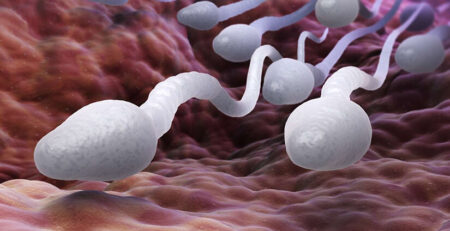The Effects of Smoking on Male Fertility
You are planning to start a family. Great! But before making this life-changing decision, you should prepare physically for the procedure. You need to change your lifestyle to enhance the chances of a healthy pregnancy. One of the most important factors that you need to consider is quitting smoking.
Smoking cigarettes not only causes health problems, it can have a significant impact on male infertility. Yes, you read it right. However, understanding its potential side effects and quitting well before planning for pregnancy can help you to improve the success of fertility treatments. So, keep reading!
First and foremost, we will talk about facts and figures.
Did you know about 50% of couples who are struggling to have a baby, have problems linked to the man, and smoking is a big reason behind it. In fact, according to the World Health Organization, nearly half (46%) of boys aged 20 to 39 who are trying to start a family are smokers.
It’s worrying to see these numbers, but even more troubling is that about 22% of people don’t realize smoking can make it harder to have a baby.
Smoking doesn’t just hurt your sperm; it can also lower the chances of your partner getting pregnant and complicates the pregnancy too by passive smoking, affecting your future child’s health.
How Does Smoking Affect Male Fertility?
Cigarettes are packed with harmful substances, and these can really take a toll on a man’s health. For men who smoke, there’s a higher risk of male infertility because they’re taking in dangerous metals like cadmium and lead, both of which can hurt their chances of having kids.
Studies have shown that these metals and tobacco can mess with the quality of a man’s sperm, damage DNA, disrupt hormonal functioning, and cause erectile dysfunction, ultimately affecting overall reproduction function.
Here are some frequent issues that could arise if you don’t quit smoking:
1- Sperm Quality
Smoking can lead to poorer sperm quality, affecting three main aspects:
Sperm Count and Concentration: As we know, cigarettes contain toxins like nicotine, cadmium, and lead. These toxins can reduce the number of sperm produced, decreasing the overall sperm count and concentration in the ejaculate.
Motility: Chemicals in cigarettes impair the sperm’s swimming capabilities, making it harder for them to reach their destination and fertilize an egg, leading to male infertility.
Morphology: Exposure to cigarette toxins can change the shape and structure of sperm, reducing their ability to penetrate. Furthermore, even if such abnormally shaped sperm manage to reach the egg, they may lack the necessary strength to fertilize it successfully.
These semen parameters are essential for fertility because they directly influence the ability of sperm to fertilize an egg. A decrease in sperm count, motility, or an increase in abnormal morphology can significantly reduce a couple’s chances of conceiving.
Here is one thing that you need to understand: according to the studies, these negative effects of smoking on semen parameters can be dose-dependent, meaning the more one smokes, the greater the impact on fertility. This highlights the importance of reducing or quitting smoking for those facing fertility issues.
The following table can help you to understand the dose-dependent effect of smoking on male infertility:
| Smoking Status | Sperm Concentration (million/mL) | Motility (%) | Normal Morphology (%) |
| Non-smoker | 39-70 | 40-50 | 14 |
| Light smoker (1-10 cigarettes/day) | 33-50 | 30-40 | 12 |
| Moderate smoker (11-20 cigarettes/day) | 25-40 | 20-30 | 10 |
| Chain smoker (>20 cigarettes/day) | <25 | <20 | 8 |

2- DNA Damage
Toxic substances in cigarettes can cause genetic mutations and damage sperm DNA. This damage not only affects fertility but can also increase the risk of miscarriages and congenital disabilities.
Also, harmful chemicals in smoke increase oxidative stress within the body, producing free radicals. These free radicals can damage cells, including those involved in the hormonal regulation of sperm production, leading to sperm DNA fragmentation. Healthy DNA is essential for successful fertilization, embryo development and enhanced success rate of IVF.
3- Hormonal Disruption
Nicotine and other harmful substances in cigarettes can suppress testosterone levels, which is the primary hormone responsible for sperm production. The development of sperm in the testes is highly dependent on testosterone. When its levels are low, sperm production decreases, reducing sperm count.
4- Erectile Dysfunction
Toxins in cigarettes can damage the blood vessels, leading to poor blood flow throughout the body, including to the penis. Adequate blood flow is necessary for erectile function, and its impairment can hinder the ability to engage in sexual activity, reducing the opportunities for natural conception.
5- Overall Reproductive Function
Toxins in smoke can affect the entire male reproductive system, including the health of the testes, where sperm is produced and the ducts through which sperm is transported.
Testing for Semen Parameters and DNA Fragmentation
If you are a chain or heavy smoker and trying to conceive with no success, your fertility doctor may conduct a semen analysis to check the semen parameters and DNA fragmentation Test for the integrity of sperm DNA. Testing for these aspects can provide valuable insights into your reproductive health and potential underlying causes of male infertility.
Semen Analysis
A semen analysis is a fundamental test that assesses the health and viability of a man’s sperm. It measures several key parameters:
- Volume: The total amount of semen produced in one ejaculation. The normal range is typically between 1.6 and 5 millilitres (mL).
- Concentration: The number of sperm per millilitre of semen (16 million sperm per mL or more).
- Motility: The percentage of sperm moving and their ability to swim forward.
- Morphology: The shape and structure of sperm.
- Total Motile Count (TMC): The total number of moving sperm in the entire semen sample.
DNA Fragmentation Test
The DNA fragmentation test goes a step further, analyzing the genetic integrity of the sperm. IVF specialists in Delhi perform this test to determine the amount of sperm in a semen sample with fragmented or damaged DNA. High amounts of DNA fragmentation might indicate diminished fertility.
Sperm with significant DNA fragmentation may struggle to fertilize an egg, and if fertilization happens, there is an increased risk of miscarriage and birth abnormalities.
Now, you might ask why these tests are so important.
Getting insights about your semen helps identify specific male infertility issues, allowing for targeted treatments. Results from the test can guide your fertility doctor in recommending lifestyle changes, medical interventions, or assisted reproductive technologies (ART) like Intrauterine Insemination (IUI) or In Vitro Fertilization (IVF).
Minimizing the Effects of Smoking
If you are worried about the effects of smoking on your reproductive health, there is good news for you. Quitting smoking offers significant benefits for male fertility, even if you have smoked for an extended period. Here are some proactive steps that you can take to minimize the risks of smoking on male infertility:
Quit Smoking: This is the single most effective strategy to improve sperm health and fertility. Quitting smoking allows your body to heal and boost sperm production to return to normal levels over time. Numerous resources and support programs are available to help individuals quit smoking, including:
- Nicotine replacement therapy (NRT)
- Medications
- Behavioural counselling
Antioxidant Supplementation: Antioxidants can help reduce oxidative stress, a condition that smoking exacerbates and can damage sperm. Include supplements such as Vitamin C, Vitamin E, and Selenium in your diet to improve semen quality. Take these supplements only after consulting with the IVF specialist in Delhi.
Improve Diet and Nutrition: Eating a healthy and balanced diet rich in fruits, vegetables, whole grains, and lean protein can provide essential nutrients for sperm production and improve overall health. Not only will eating healthy food help you, but limiting saturated and unhealthy fats, processed foods, and excessive sugar intake is equally important to enhance sperm health. It will improve the success rate of IVF treatment.
Maintain a Healthy Weight: Being overweight or obese can negatively impact sperm quality. Maintaining a healthy weight through a balanced diet and regular exercise can improve overall health and potentially enhance sperm health. Your IVF specialist in Delhi will suggest you include specific exercises in your daily routine.
Manage Stress: Chronic stress can also contribute to impaired sperm production. Find healthy ways to manage stress, such as relaxation techniques, regular exercise, or spending time in nature. All the active methods can benefit overall well-being and potentially improve sperm health.
Avoid Second-Hand Smoke: Exposure to second-hand smoke, the mixture of smoke that comes directly from the burning end of a cigarette, cigar, pipe, or other tobacco product, and the smoke that the smoker exhales can also affect sperm health. Avoid secondhand smoke exposure whenever possible to protect sperm health and fertility and improve the success rate of IVF.
Take The Proactive Steps to Preserve Your Fertility!
Smoking has a profound impact on male fertility, affecting sperm count, motility, morphology, and DNA integrity. For couples facing fertility challenges, understanding these effects and taking proactive steps, including quitting smoking and possibly using antioxidants, can improve their chances of conceiving. Timely semen analyses and DNA fragmentation tests can also provide valuable insights into male fertility status and guide treatment decisions.
If you are looking for male infertility treatment in Delhi, schedule your consultation with Dr Rhythm Gupta and fulfil your dream of having a family.












